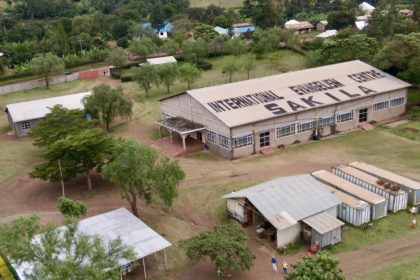The International Evangelism Centre (IEC) is primarily a Bible school founded in 1983 by Bishop Eliudi Issangya in the village of Sakila, Tanzania. The bishop started out as a farmer with a small piece of land, but he had a strong vision for spreading the gospel to his village, to his country, and to all of Africa. The school began on a one-acre site, where four small buildings were constructed and classes began with 20 students. Today, the campus has 14 acres and many buildings housing dormitories, classrooms, and a large seminar hall. Presently, there is a need to upgrade the school facilities and technology as well as improve the existing dormitories and add new ones. A Student Centre is also on the wish list, providing a library, computer lab, and multipurpose lounge.
At the Bible school, students are immersed in a rigorous schedule of prayer, classroom teaching, and evangelistic outreaches to communities in the area, as well as stewarding the needs of the physical campus. The training, meals, and lodging are free; the students are only required to get to the campus on their own to begin studying.
The graduates have taken their training and their faith to surrounding countries, creating a spiritual “ring of fire” in East Africa. The work has also spread to South Africa and the Congo, where schools of evangelism now train Christian workers in those nations. International Evangelism churches have been established to support the alumni who have begun new Christian works following their graduation.
Each year In the month of June, many of the graduates return to the original campus for a seminar, where the word is preached and encouragement is received to carry on the work that was begun at the Bible school.
Bishop Eliudi’s vision of a significant means of spreading the gospel through trained Christian workers has become a reality, impacting not only Tanzania but also Kenya, Rwanda, Burundi, Mozambique, Malawi, Uganda, Zambia, South Africa, and Congo. This is the fruit of the original vision God gave him while he was still a poor farmer in the late 1970s.

